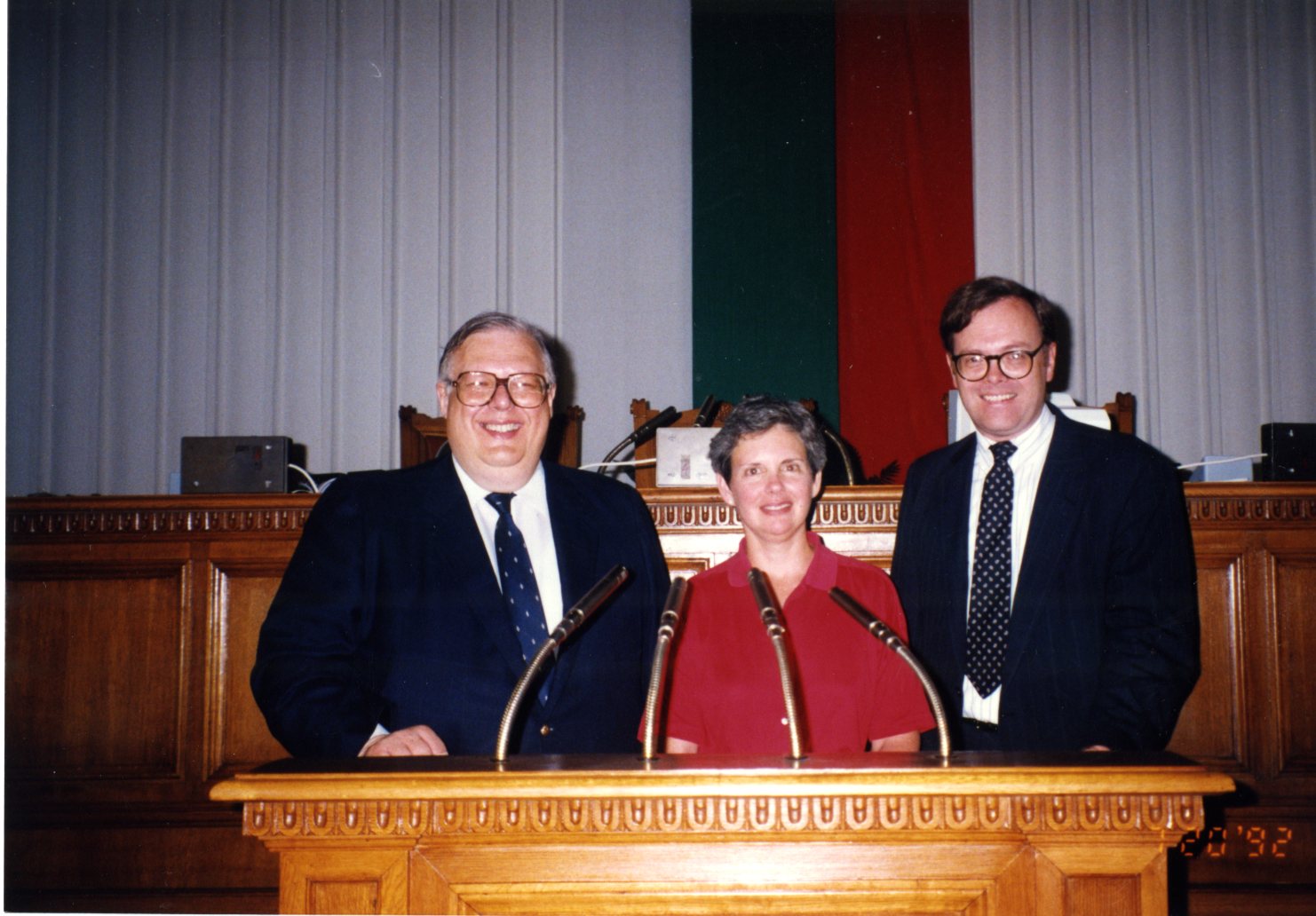 James Serritella, DePaul University Professor of Law Patty Gerstenblith and Boston University Professor of Law W. Cole Durham in Moscow, Russia, at the 1993 conference: Freedom of Religion in a Modern World.On April 23, 2021, James Serritella passed away at the age of 78. An attorney at Burke, Warren, McKay & Serritella, PC, Seritella was best known for serving as the Archdiocese of Chicago's principal outside counsel for 50 years. In 1982, he founded, in consultation with then DePaul University President John Richardson, CM, and College of Law Dean Elwin J. Griffith, the nondenominational Center for Church/State Studies at the College of Law, which lasted for nearly 30 years. At the time, it was the only center of its kind in the United States, and it was at the forefront of examining religious liberty rights for churches and other religious organizations that do charitable work. As a research center, it explored the intersections of law and religion in American society as well as church-state relations in the United States.
James Serritella, DePaul University Professor of Law Patty Gerstenblith and Boston University Professor of Law W. Cole Durham in Moscow, Russia, at the 1993 conference: Freedom of Religion in a Modern World.On April 23, 2021, James Serritella passed away at the age of 78. An attorney at Burke, Warren, McKay & Serritella, PC, Seritella was best known for serving as the Archdiocese of Chicago's principal outside counsel for 50 years. In 1982, he founded, in consultation with then DePaul University President John Richardson, CM, and College of Law Dean Elwin J. Griffith, the nondenominational Center for Church/State Studies at the College of Law, which lasted for nearly 30 years. At the time, it was the only center of its kind in the United States, and it was at the forefront of examining religious liberty rights for churches and other religious organizations that do charitable work. As a research center, it explored the intersections of law and religion in American society as well as church-state relations in the United States.
The Center's primary focus was on the First Amendment. As part of the Center's work, Seritella developed a First Amendment-focused Legal Scholars Advisory Board and served as editor-in-chief of the reference work,
Religious Organizations in the United States: A Study of Identity, Liberty, and the Law, which featured commentary from a variety of prominent experts at law schools and religious organizations across the country.
Colleagues recognized how forward-thinking Seritella was in his approach to religious liberty. Rev. Craig Mousin, former Center director and current DePaul University ombudsperson, praised him for “recognizing the vacuum in jurisprudence" when it came to religious liberty and for approaching the subject with neutrality by bringing multiple voices and perspectives. According to Mousin, the Center's programs provided a unique look at “how we think about discrimination and religious liberty" and showed what “good scholarship and good research could do for furthering liberty for all."
Bill Marshall, University of North Carolina William Rand Kenan Jr. Distinguished Professor of Law, recognized that Seritella was “ahead of the curve in realizing that religion, the law and the structure of churches needed serious study." The Center, he says, laid the groundwork for considering “a lot of the controversies that we would see in later years but hadn't fully crystallized," such as the religious liberty of pharmacists to provide contraceptives, people refusing to work on projects for LGBTQ+ persons. Marshall felt Seritella understood the importance of developing an understanding of the law, regardless of one's stances on the issues.
Outside of his work with the Center, Seritella was admired for his approach to the law. Mousin commended him as an attorney because he respected his clients' missions and encouraged them not to sacrifice their values at the expense of their lawyers' suggestions. University of Virginia Law School Robert E. Scott Distinguished Professor of Law Douglas Laycock believed Serritella “pushed churches to be more transparent about the sexual abuse crisis. If every diocese had had a Jim Serritella, the Church would have been a lot better off." Consistent with this perspective, one of Seritella's most notable achievements was creating nationwide policies to combat child sex abuse, which formed the basis of the United States Conference of Catholic Bishops' Charter for the Protection of Children and Young People.